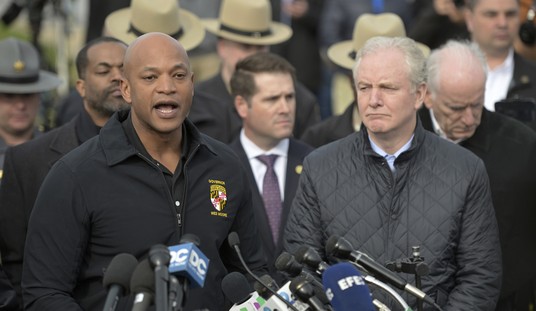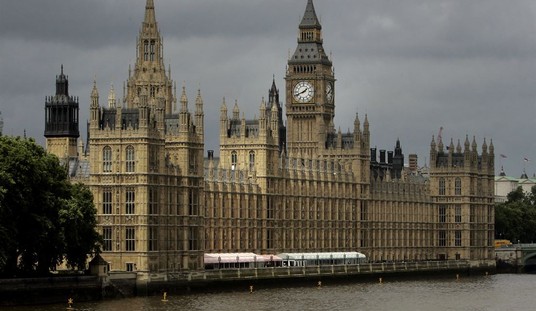I have to confess, when I first saw the headlines for this story popping up in my Twitter timeline, my initial thoughts ran in very different directions than the facts of the case. Former Reagan Press Secretary James Brady’s recent death had been ruled a homicide, and I immediately wondered who had done him in at his later stage of life. (He was 73 at the time of his passing.) Had he been poisoned? Some sort of medical malpractice? But no, it turned out that the cause of death was going to be listed as a result of his shooting 33 years ago.
The death this week of James S. Brady, the former White House press secretary, has been ruled a homicide 33 years after he was wounded in an assassination attempt on President Ronald Reagan, police department officials here said Friday.
Officials said the ruling was made by the medical examiner in Northern Virginia, where Mr. Brady died Monday at 73. The medical examiner’s office would not comment on the cause and manner of Mr. Brady’s death.
“We did do an autopsy on Mr. Brady, and that autopsy is complete,” a spokeswoman said.
Gail Hoffman, a spokeswoman for the Brady family, said the ruling should really “be no surprise to anybody.”
“Jim had been long suffering severe health consequences since the shooting,” she said, adding that the family had not received official word of the ruling from either the medical examiner’s office or the police.
The fact that the shooting had a profound, detrimental effect on Brady’s health for the rest of his life is beyond dispute. But I’ll confess that I was immediately uncomfortable with describing it as the actual “cause of death” in this situation. Upon further consideration, it also became clear that there’s probably a very big gray area in the law on this question. Not everyone who dies from a violent attack expires on the scene. If a victim is shot on the sidewalk in front of their office but survives long enough to be taken to the emergency room and then dies during surgery later that night, I don’t think anyone would claim they weren’t a homicide victim.(But even in that case, what if the wound was evaluated as being completely survivable, but clear, gross malpractice on the part of the surgeon was later proven?)
People might also linger on for days or even weeks after a traumatic injury, only to expire from secondary effects. (We’ve seen that in some bombing attacks.) But where do you draw the line in terms of who died as a direct result of an attack and those who died of “natural causes” some great time later. Brady actually outlived the national average lifespan. Could his crazed shooter, John Hinckley Jr, actually be prosecuted for his murder even after having stood trial for his attempted murder decades ago? Attorney Doug Mataconis shares his thoughts.
The original 13 count indictment against Hinckley in Federal Court, for example, included attempted murder charges under both Federal and District of Columbia law for the shootings of President Reagan, Metropolitan Police Department Officer Thomas Delahanty, Secret Service agent Timothy McCarthy, and Brady.(See this article from the Toledo Blade from August 25, 1981, and this Christian Science Monitor article from the same day.) He was acquitted on all of these charges based on the psychiatric evidence that was presented in Court. While double jeopardy would not, in theory, bar bringing murder charges even though Hinckley was a acquitted of the attempted murder of the same person since these are different offenses, one would imagine that Hinckley’s defense would clearly raise this argument before trial.
More importantly, though, even if the prosecution were able to get beyond the double jeopardy issue it is hard to see how they’d be able to avoid the same outcome that they ended up with 32 years ago. While the law has changed significantly since the Hinckley verdict regarding the what a Defendant must prove in order to establish legal insanity at trial, it seems clear that the law that would apply in a trial today for the murder of James Brady would be the law as it existed in 1982 when Hinckley was on trial. Whether Hinckley was tried before a jury or by a Judge, that trier of fact would be required to apply the law as it existed back then, which was much more favorable to Defendants than it is today.
So if I’m following Doug correctly, it’s technically possible that murder charges could be brought against Hinkley, but hopes for a favorable outcome by the prosecution would be dubious at best. I certainly won’t argue with the second part, and frankly I doubt we’ll see any new court action out of it. But should it even be possible to bring those charges? I’m not saying anything here to take away from the seriousness of Hinkley’s crime, nor the tragic consequences for James Brady. I’m simply asking if there shouldn’t be some sort of expiration date after which a person’s death should be attributed to either a new agent or natural causes rather than pushing back to the original attack. Hinkley was, in my view, clearly guilty of attempted murder (though he got off on the insanity defense) but can he now be declared guilty of murder? Didn’t Brady actually survive the attempt?
I asked Doug about it while preparing this article and he responded as follows:
Some of your questions are, I think, answered by Eugene Volokh in the piece I linked in the post. He talks about the “year and a day” rule, which is a common law rule that basically said that a murder charge could not be brought if someone died more than a year and a day after the action which allegedly caused the death. There have been many exceptions made to the rule over the years, and it’s not clear if it would even apply under Federal or D.C. Law, but that’s one argument [Hinkley’s] lawyers would likely use if he were indicted for murder.
The second argument is a bit more complicated,, buy yes you’re basically right that the idea that he was tried for attempted murder and acquitted by reason of insanity 32 years ago would preclude the prosecution from trying him for murder now.
As Volokh put it:
“The jury determined by a valid and final judgment that Hinckley was insane, and thus couldn’t be liable for attempted murder. This judgment is binding on the government, and since the insanity defense applies the same way for murder as for attempted murder, it means that Hinckley would now be conclusively presumed to have been insane for purposes of any murder prosecution as well. He would have an ironclad defense to the murder charge, and thus any case against him couldn’t proceed. “
I wasn’t familiar with this “year and a day” rule, but since it’s a “rule” rather than a “law and many exceptions have been made, it doesn’t seem to be very iron clad.
Your thoughts, as always, are welcome.








Join the conversation as a VIP Member